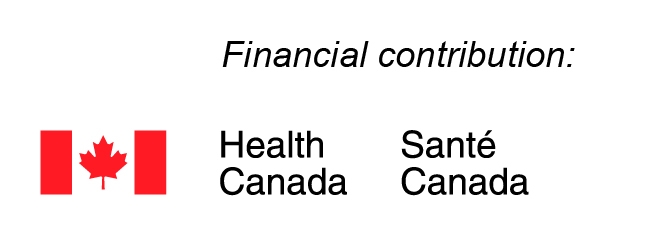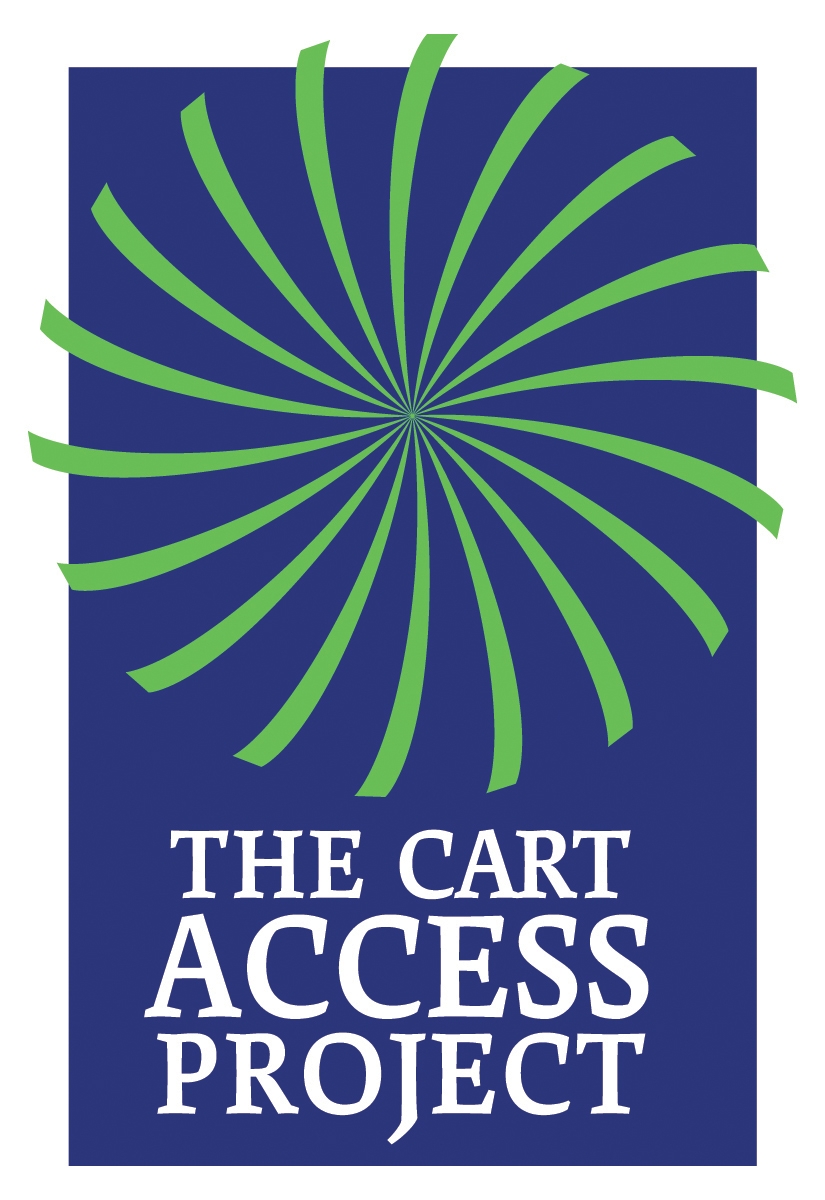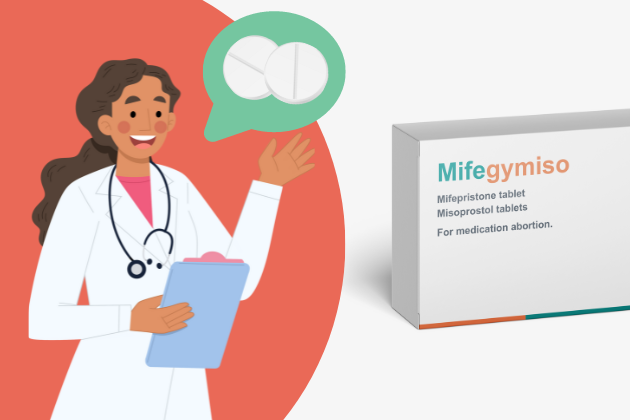
Asking a healthcare provider to prescribe medication abortion is a brave thing to do!
You may feel more confident if you have all the facts. Below you’ll find information about medication abortion in Canada, how to avoid anti-choice activity, and what you can do if a doctor or nurse practitioner refuses to help.
You can find resources to share with your healthcare provider here.
Facts about medication abortion in Canada
Medication abortion typically uses a combination of two medications, mifepristone and misoprostol, to end a pregnancy. In Canada, mifepristone and misoprostol are prescribed together in one box under the brand name Mifegymiso (mi-fee-guy-mee-so).
Mifegymiso became available in Canada in 2017. Health Canada's guidelines about this medication have changed a few times since then, so some healthcare providers may not have the most up-to-date information.
What you need to know about Mifegymiso:
- It's approved by Health Canada for use up to 9 weeks gestational duration*, but may be prescribed a little later than that by some providers.
- It can be used without first doing an ultrasound. Healthcare providers can use their medical judgement to date the pregnancy and assess the risk for a pregnancy outside of the uterus (ectopic)**. It may be enough to confirm a pregnancy and estimate the gestational duration based on the last menstrual period. Blood tests and manual exams can also be used to date a pregnancy.
- It can be prescribed by any family doctor or nurse practitioner. In Quebec, midwives can also prescribe it. If a primary care provider doesn't already offer medication abortion, they can start any time. See Resources for Healthcare Providers.
- It's free for people with a valid Canadian health card. In Alberta, proof of address is enough.
- It's offered virtually in some places. This is called “no touch,” “low touch,” or ''telemedicine'' abortion. You can have appointments by phone or online and pick up the medication from a local pharmacy. Contact the Access Line for help finding a virtual provider.
* Gestation/gestational duration refers to how far along the pregnancy is. It is measured in weeks and days, from the first day of your last menstrual period (LMP) to the current date.
** Some healthcare providers may still require or recommend an ultrasound. It may also be medically necessary in some cases if there are symptoms of an ectopic pregnancy or the date of the last menstrual period isn't known. Some providers who aren't comfortable with abortion may ask for an ultrasound because they think it could change someone's mind. You have the right to ask a provider to explain why they want an ultrasound and to request that they don't show you the screen or any images.
How does medication abortion work?
Medication abortion uses a combination of two medications (mifepristone and misoprostol) to end a pregnancy.
Mifepristone is the first medication taken to stop the pregnancy from developing further.
Misoprostol is the second medication, taken 24 to 48 hours later. This medication causes cramping and bleeding, which expels the pregnancy tissue.
Can anyone have a medication abortion?
Having a medication abortion may not be suitable for everyone or for every pregnancy. For more detailed information about if medication abortion is suitable for you, check out the Mifegymiso patient information guide.
Medication abortion may be suitable if…
- You have confirmed you are pregnant with a urine test.
- You have a regular period, which means you bleed regularly every 4 – 5 weeks or so.
- You are less than 9 weeks pregnant*
Medication abortion may not be suitable if…
- You have a known bleeding problem.
- You are taking medication that prevents or treats blood clots.
- You are taking steroids or corticosteroids.
- You have adrenal failure.
- You have an allergy to mifepristone, misoprostol, or prostaglandins.
Note: If you have an IUD, it must be removed before a medication abortion.
*Mifegymiso is recommended for use by Health Canada up to 9 weeks (63 days) of pregnancy. In many places in the world, these medications are safely and commonly used up to 12 weeks or more. Some providers in Canada will prescribe it up to 12 weeks, so it may still be worth asking your provider if your pregnancy is under 12 weeks.
Do I have to pay for a medication abortion?
If you have Canadian health insurance, you do not need to pay for a medication abortion. Canadian health insurance means any plan from a province or territory, as well as plans for refugees (IFHP), Indigenous peoples (NIHB), and people in the army (CFHS).
Your healthcare provider can give you a prescription for Mifegymiso to bring to a pharmacy where they will dispense it. You will need to present a valid health card to get Mifegymiso from the pharmacy for free.
If you are not in the province or territory where you have health insurance, you may need to pay out of pocket and request a reimbursement. You can contact your insurer directly to ask about this process and ask the pharmacy if your health insurance will be accepted.
You can contact our Access Line* for support if:
- You have a health card, but it's expired.
- You have a health card but you can’t access it.
- You don't have any proof of coverage by a Canadian health plan.
- You have a health card, but you aren't in that province or territory.
- You don't have any form of insurance.
- The insurance you have doesn’t cover Mifegymiso.
*Call 1-888-647-2725 or text 613-800-6757
Who can prescribe medication abortion?
By law, only some healthcare providers can prescribe Mifegymiso in Canada:
- Primary care providers
- Family doctors/physician
- General Practitioners (GP)
- Nurse Practitioners (NP)
- Obstetricians and Gynecologists (OB/GYN)
- Midwives in Quebec
In some provinces, midwives and Registered Nurses (RN) are involved in abortion care with a primary care provider who writes the prescription.
Can medication abortion be reversed?
You might hear some people talk about “abortion reversal”. There is no treatment approved by Health Canada to reverse abortion. Any treatment that claims to reverse abortion may be dangerous to your health.
Once you begin a medication abortion, the process can be stopped but not reversed. This means that if you change your mind, you can choose not to finish taking the medications but there is no way to undo the effects of any medication you already took. Please talk to your healthcare provider if this is something you're considering doing.
If you are at all unsure about having an abortion, there are resources to support you in making the decision that is best for you.
Can a healthcare provider refuse to provide abortion?
Healthcare providers are entitled to their personal beliefs about abortion, but they shouldn't prevent or delay anyone from accessing medical care. There are specific policies about what doctors and nurses are expected to do if they refuse to provide abortion care due to personal values or beliefs.
Family Doctors
Doctors can refuse to provide abortion care in Canada.
In Alberta, British Columbia, Prince Edward Island, Quebec, and Saskatchewan, doctors must ensure that people are offered access to another physician, or to information. This doesn’t mean they have to provide a referral to someone who provides abortion.
In Ontario and Nova Scotia, doctors can refuse, but they are responsible for ensuring access to someone who provides abortion. This means that they must:
- Tell you they are refusing because of personal and not medical reasons.
- Provide a timely and “effective” referral. This means they need to direct you to another doctor or clinic who provides abortion. This should not be a counselling service, or a Crisis Pregnancy Centre.
Nurse Practitioners
Nurse practitioners can refuse to provide abortion in Canada.
In British Columbia and Manitoba, nurses can refuse but they are still responsible for ensuring that you have access to someone else who can help you.
Learn more about belief-based care denial by province/territory in the Abortion Access Tracker.
How can I avoid anti-choice activity?
There are many groups in Canada that are anti-abortion. Some have facilities called Crisis Pregnancy Centres (CPCs) that are set up as places where people can get help with an unplanned pregnancy. Many of these centres are connected to religious organizations, but they might not tell you that upfront.
CPCs often try to convince people not to choose abortion. They do this by giving false, or misleading information. They may also shame, guilt, or pressure people to continue the pregnancy, sometimes using religious reasons.
Some CPCs look like health clinics and may offer medical services such as ultrasound. Some CPCs provide programs or practical supplies for new parents, such as baby clothes and diapers. While this can be helpful to people choosing to continue their pregnancy, it's never okay to push people to make a specific decision about a pregnancy. Deciding what to do about a pregnancy can be complicated. People deserve to have someone who will listen without judgement and support what they think is best for themselves.
Tips for avoiding CPCs
If a nurse or doctor offers you a counselling referral when you ask for abortion, you can:
- Check if they're on this list of known Anti-choice groups by the Abortion Rights Coalition of Canada (ARCC).
- Ask what services they offer before sharing any personal information.
- Ask directly if they offer abortion care on site.
- Ask if they are tied to a church or religious organization. Their website may have this information at the bottom or on their About page.
This information is part of the Asking for an Abortion Pocket Guide, which provides facts and tips on how to ask a healthcare professional for medication abortion. It was last reviewed in April 2025.


The views expressed herein do not necessarily represent the views of Health Canada.

